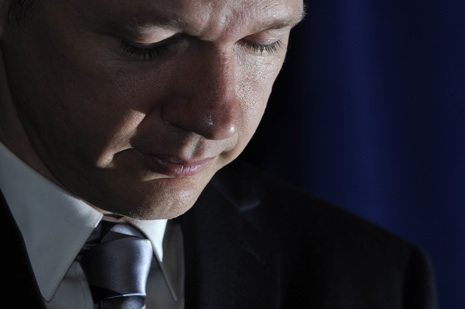THINGS are not always as they seem in Julian Assange’s WikiLeaks shadow-world of data-dumps and secrecy breaches. And the issues raised by the latest WikiLeaks disclosures are more complex than the outrage of political leaders and Mr Assange’s claim that he is defending the public right to know about sensitive foreign policy exchanges.
Most of the debate so far seems to have centred on how “serious” the WikiLeaks disclosures are in terms of damage to western, especially American, interests. That is largely a red herring: there are few surprises and little that is seriously damaging - apart, perhaps, from reports about China’s alleged contempt for North Korea and Saudi Arabia’s push for a military attack on Iran.
What matters much more is how this highly organised, carefully edited and selectively released material was put together. Former US national security adviser Zbigniew Brzezinski has asked a troubling question: could anti-western intelligence interests have “seeded” the WikiLeaks dump with a few pages on China and Saudi Arabia calculated to damage US relationships and to compromise frank private diplomatic exchanges? No definite answer is possible and unfalsifiable conspiracy theories are always dubious. But it would be dangerous if such seeding had occurred – and it cannot be ruled out in Mr Assange’s twilight world where his private obsessions are matched only by his self-satisfaction.
The traditional liberal journalistic defence of WikiLeaks is that it is not the business of the media to keep government secrets. Its role is rather to expose secrets and to enlighten those who care about and consume public policy information. That is entirely correct.
But it is a shaky defence of the massive WikiLeaks dump. It is equally not the business of the media to make it extremely difficult, if not impossible, for diplomats to speak frankly to each other and to report fully to their governments. The WikiLeaks disclosures, even the sillier ones about various world leaders, will have this effect: frank confidential diplomatic communications are likely to be compromised as envoys seek to avoid candid exchanges and possibly embarrassing subsequent leaks.
What diplomats say and write privately is different from what they say and write for public consumption. Those private exchanges can give crucial insights to policymakers and ministers. To compromise them is to compromise diplomacy itself and the ability of nations to speak frankly.
The point is that publicity and privacy are both essential to effective diplomacy. There has to be a balance between them – and governments generally tilt too far towards privacy while the media tilt too far towards unconsidered disclosure. Yet that perpetual tension is preferable to total disclosure or to total secrecy. We do not inhabit an all-or-nothing world. Modern political news management might be a dark and dreadful art, but the answer is not to strip diplomacy naked in the public square. It is to maximise disclosures without resorting to indecent exposure that demeans both media and diplomatic practitioners.
As governments move inevitably to tighten security procedures and to press criminal charges in response to the WikiLeaks dump, Mr Assange might pause to consider how much harder his activities have made it to maintain the privacy–publicity balance essential to the functioning of an open society.
It is notable that Mr Assange so far has leaked only American documents – presumably because they are easier to access than the documents of other nations, or because he has only managed to find a disaffected American (or Americans) ready to pass on secrets. Democracies are obviously more susceptible to leaks than authoritarian regimes.
What would he find if he accessed files from authoritarian regimes like Russia, China, North Korea and Iran? It is a fair bet that those documents would reveal actions and policy stances and reports of conversations no less intriguing, and possibly far more threatening, than anything in the US documents.
It is not only American diplomats who seek to collect personal intelligence and information on their foreign counterparts. Within limits, the sorts of collections described by WikiLeaks are not objectionable and can yield valuable and legitimate information on diplomatic interlocutors.
There is, of course, no denying that the WikiLeaks dump contains much fascinating information. Some of it is finely written and reflects very favourably on the US foreign service. But it is far from obvious that Mr Assange has advanced the cause of the open society. More likely he is making it more difficult to achieve. •




